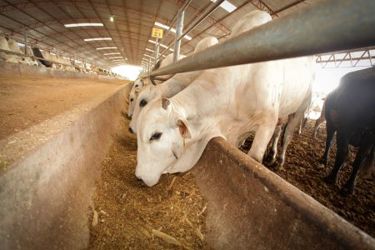U.S. EPA Rejects Calls For Stronger Livestock Wastewater Regulation


The nation’s foremost source water protection agency has sidestepped calls for stricter rules around some of the most concerning industrial wastewater sources, vowing instead to conduct its own investigation into the problem.
“President Joe Biden’s administration … rejected pleas to strengthen regulation of large livestock farms that release manure and other pollutants into waterways, promising more study instead,” the Associated Press reported. “The agency will establish a panel with representatives of agriculture, environmental groups, researchers and others to develop recommendations.”
The impact of livestock wastewater has been an area of focus for the EPA this year, with the agency acknowledging the need for refreshed data related to these operations and signaling an intention to update its water pollution rules for slaughterhouses for the first time in almost two decades.
But as livestock operations become more prominent, environmental groups are becoming more concerned about their wastewater contributions and pushing the EPA to act with urgency.
“Beef, poultry and pork have become more affordable staples in the American diet thanks to industry consolidation and the rise of giant farms,” according to AP. “Runoff of waste and fertilizers from the operations — and from croplands where manure is spread — fouls streams, rivers and lakes. It’s a leading cause of algae blooms that create hazards in many waterways and dead zones.”
Despite the agency’s promises to study the issue more closely, those petitioning it have pointed out that the need for stricter regulations is already well established.
“We know that animal factories are a huge source of water pollution and that our freshwater is in crisis, and yet EPA has failed to uphold its duty to protect our environment from this industry,” an attorney with the Center for Food Safety, which sued the EPA last year over its delay, told Common Dreams. “We have a right to clean and safe water and we cannot afford to wait any longer to stop the tide of pollution from animal factories.”
In its reluctance, the EPA appears to be searching for solutions that are more palatable for the agricultural operations themselves. The agency’s advisory panel is expected to meet several times over the next 12 to 18 months in search of a solution that might not require new regulation.
“After EPA gets the group’s recommendations and completes its own study, the agency will decide whether new rules are needed or whether better implementation and enforcement of existing ones would be more effective,” AP reported.
To read more about the impacts of wastewater from agricultural operations visit Water Online’s Industrial Solutions Center.
